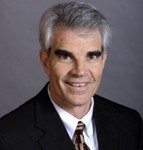
by | Aug 27, 2012
 While the direction of the Country will be decided at the top of the ballot this November, the epic struggle for control of Iowa’s political landscape will be decided down ballot.
While the direction of the Country will be decided at the top of the ballot this November, the epic struggle for control of Iowa’s political landscape will be decided down ballot.
Of all the races taking place across the state, the long blocked agenda of Iowa Republicans is only two Senate seat gains away from being able to be implemented. Since the Iowa House is in no danger of flipping—the fate of this agenda lies in the Iowa Senate’s 26 open seats.
While anything can happen in these legislative races between now and November, this following analysis reflects where they stand today. Here is how we get from the 26 Senate seats up for grabs down to the 5 that will determine control of that chamber—and hence political control of Iowa for the next two years.
First things first: From 50 to 26 to 22
From 50 to 26— There are 50 seats in the Senate and all even numbered districts are on the ballot this year plus SD 49, which holds a race for a two year term before going back on the ballot in 2014. This means that there will be 26 seats in play, with the Democrats starting with an advantage due to having 13 of the hold over seats to the Republicans 11.
From 26 to 22— Of the 26 races, Republicans have fielded a candidate in all of them while the Democrats have let four seats go unchallenged (SD 2, SD 10, SD 12, and SD 20). This takes us from 26 possible races to 22 that will actually take place.
From 22 to 13— Of these 22 races, nine heavily favor* one party or the other. Four favor the Republican candidate (SD 40, SD 28, SD 6, and SD 4); while 5 favor the Democrat candidate (SD 50, SD 34, SD 32, SD 18, and SD 16).
*Note: This analysis is largely based on the past history of communities making up the districts, registered voter advantages, and money raised and on hand for each candidate. In all likely and leaner districts there are more than enough registered Independents to technically make up R and D registration advantages.
The Battle Field
From 13 to 5— This leaves 13 races left which will be heavily contested and which will draw the attention of, and funds from, the state political parties. Of these, I see five leaning Republican and 3 leaning Democrat– for Republicans they are SD 46, SD 38, SD 24, SD 22, and SD 14, and for Democrats they are SD 44, SD 42, and SD 8.
Of note here is that, for the time being, Senate Majority Leader Mike Gronstal is given SD 8 over Al Ringgenberg. Also, the best shot for Republicans in these Democrat leaners are SD 42 and SD 8, while Democrats look to have the best chance in SD 46 and SD 38.
The Final 5
The remaining 5 races can truly go one way or the other and are absolutely critical for control of the Iowa Senate. They are SD 49, SD 48, SD 36, SD 30, and SD 26.
Here is a recap of how we got there:
                                                                   Republicans         Democrats
                        Hold Over Seats                       11                        13       Â
                       Uncontested                              4                          0 Â
                         Likely R or D                            4                          5 Â
                         Lean R or D                              5                          3                                                    Â
                                                             ——————————————                                                             Â
                                                                           24                        21
Going Forward
As you can see from above, assuming my “likely†and “lean†numbers hold true, Republicans are in great shape to take the Senate as they only need to win 1 of the “final 5†races to tie and only 2 of the 5 to gain outright control. Conversely, Democrats would have to win 4 of the “final 5†for a tie and would need a clean sweep to retain control.
Two interesting facts here are that all the big action is in Eastern Iowa, which is home to all 5 of these decisive races, and that 4 of the 5 are contained in U.S Congressional District 1. This is further good news for Republicans as Ben Lange is a great candidate who seems to be gaining steam against a sputtering Bruce Braley.
In the coming weeks The Conservative Reader: Iowa will be featuring interviews with Republican candidates from across the state. Additionally, we will be taking in-depth looks at the 8 races which will be highly contested and the 5 that will be utterly critical for taking the Iowa Senate.
The voters in these 13 districts will ultimately answer the questions of how much property tax relief we receive, what reforms are made to our declining education system, and whether Iowa will set up health insurance exchanges for Obamacare. One thing I have no question about is that these districts are where the battle for ideological control of Iowa will be won or lost.

by | Jul 22, 2012
 While every Republican in Iowa has been wishing that Randi Shannon would withdraw from public view just quickly as she withdrew from the ballot 10 days ago–it appears this will not be the case.
While every Republican in Iowa has been wishing that Randi Shannon would withdraw from public view just quickly as she withdrew from the ballot 10 days ago–it appears this will not be the case.
Instead of going away quietly she has chosen to, of all things, go on a publicity tour to promote her appointment as “Senator” in a new government called “The Republic of the United States of America“. On July 13th she released a truly unbelievable letter detailing why she was dropping out of the Iowa Senate race to represent District 34 and joining this new alternative “union”.
The discussion she had with Ed Fallon recently is below (via The Bleeding Heartland), for an entertaining and jaw-dropping 15 minutes of video fast forward to the 10 minute mark and watch till around the 25 minute mark. This is one of the few times I have felt truly sorry for Mr. Fallon.
[wp-youtube]NsOvb0LTV2w[/wp-youtube]

by | Jul 11, 2012
 After easily defeating a primary challenger in June, Iowa House member Kevin Koester was kind enough to sit down with The Conservative Reader: Iowa to discuss his upcoming general election in November, as well as the many issues he will be dealing with should he earn a third term in the Iowa Legislature.
After easily defeating a primary challenger in June, Iowa House member Kevin Koester was kind enough to sit down with The Conservative Reader: Iowa to discuss his upcoming general election in November, as well as the many issues he will be dealing with should he earn a third term in the Iowa Legislature.
The Primary, The General Election, and the Pulse of House District 38
The process of winning re-election for Rep. Koester began even before the legislative session ended, as the first order of business was winning a primary challenge by Saylor Township resident Brett Nelson. As the session ran long, Koester made several hundred phone calls in his downtime and began getting acquainted with the voters in his newly re-drawn House District 38.
He handily defeated Nelson 456 to 80, and took many positives away from the effort this challenge required, “I’m very grateful for both the margin of victory and for the experience of the primary because it really helped energize my campaign for November, and gave me a great familiarity with the new territory in the district.â€Â In an interesting aside, after not meeting or speaking to each other throughout the primary, the two have since met and Nelson even took up an offer by Rep. Koester to join him in a weekly bible study—a great, albeit rare, good ending to a primary challenge.
Talking to voters throughout this process affirmed to Rep. Koester that the dominant issues for his November show-down with Democrat John Phoenix will include the state budget, government over-spending, and the economy. Besides these economic issues, the background of the two candidates, combined with the issues still facing the legislature, serve to telegraph the subject matter that will be front and center in this race—education reform and public sector unions.
While Koester has decades of experience with education in Iowa, Phoenix was elected to the Des Moines School Board where he served for six years. In addition to this, Phoenix also has been a long-time union steward, has already been endorsed by the AFL-CIO, and strongly believes that “unions help make our country stronger and improve the lives of all workers.â€
Speaking to these differences, Rep. Koester believes that, “because of his role and his voice on collective bargaining issues and union viewpoints, there will be plenty of distance between us to give the voters a clear choiceâ€. Given the fact that Mr. Koester is a strong Conservative Republican and Phoenix is a pro-union, former school board member who featured Des Moines super-liberal Ako Abdul-Samad at his first fundraiser—the gulf between the two is likely to be enormous on a long list of issues. Here is a look at two of these issues, and where Rep. Koester stands on them.
Education Reform
Like most Iowa Republicans, Mr. Koester was very disappointed in the progress made on education reform by the last General Assembly. “The things we voted on last session were not reforms, they were Band-Aids. We did not do surgery, and that is what is truly needed.â€
After seeing countless specific and detailed proposals get torn apart by the opposing sides, he stands ready to work on a broad frame of reform that can be agreed on in principle and passed. “What I have is a drive to dismantle the fluff, and no patience for the simple arguments that only serve to attack valid ideas. We need to stop the nit picking and the warring, and come up with a product and move forward on it.â€
Two realities in the current system that he sees as negatively affecting students are the lack of teachers being removed for poor performance and the practice of “last in first outâ€, which is the seniority structure that protects long-time teachers from being let go, in favor of removing less tenured teachers when staff sizes are cut. This practice has long been under fire by Republicans because it refuses to take into account the skill level and effectiveness of each teacher. “Last in first out is bad for kids. We need to look at who is performing and have that be the prime focus, and not necessarily just who has the most experience. A pay raise needs to be given for performing better, not just given out for coming back the next year and being a year olderâ€.
In terms of the reforms needed to reverse our recent embarrassing trend in education, the crucial ingredient in Rep. Koester’s view is to quantify the performance of the employees in our education system. He will not support any proposal without this component, and he concisely summed up his position on education by saying:
We will have meaningful and fundamental reform when we agree on how we are going to measure student learning, how we are going to measure each of our Principal’s leadership and influence in the classroom, and how we are going to measure teachers and instruction. That is where the rubber meets the road on this issue.
Unions and Collective Bargaining
With Governor Branstad recently signaling a desire to look at their financial impact on the state, and John Phoenix’s close personal ties to them, there is little doubt that public sector unions and collective bargaining will be hotly debated in this race.
Rep. Koester has already taken several votes on this issue, all with the goal of bringing public sector unions more in line with the realities of the private sector, and attempting to prevent the payouts involved from breaking the bank as we have seen in several other states in recent years.
The votes he has taken include voting three times for employees of the Legislative branch, including himself, to pay a portion of their health insurance cost. The first was for a contribution of $50 a month, the second for a $100 a month, and the third for $200 a month. “I have gone on record every opportunity I have had insisting that Legislators are charged something, and I strongly believe that all state employees should help pay for the cost of their health insurance.â€
He also voted in favor of the measure that went into effect July 1st, which changed the formula for calculating retirement benefits for state employees. In the past payouts were figured using an average of an employee’s top three wage earning years, which has now been changed to take the average of the top five years.
In the larger picture, he supports having a policy ensuring that the number of government employees does not swell beyond what is needed and can be financially sustained in the long run. To this end he favors implementing breaks on the growth of state government that ties the number of workers and salaries to the overall growth of our state economy, and prioritizes the issue the following way:
I want to start with how we plan for how many state jobs there will be. You don’t grow the economy by growing the number of public jobs—that is socialism. The second thing is then addressing the disproportions in the health insurance contributions and the retirement benefits. The benefits are out of control compared to what the private sector is doing, and to what Iowa taxpayers are doing to take care of their families. We need to get those things in line, and what is fair for the rest of Iowans should be fair for the public employees that they are paying for.
Next Stop: November
Anyone who talks issues with Rep. Koester immediately realizes that he has a deep grasp on nearly all of them, including all the moving parts involved with each. On substance, he can go toe-to-toe with anyone and will shine in the public forums and debates with Mr. Phoenix.
As this contest slowly unfolds till November, the topics these two candidates debate along the way will be a roll call of every major issue facing the citizens of Iowa. In particular, the colliding ideologies on taxes, education, and public sector unions will be a true foreshadowing of the debates that will consume the next General Assembly.
How strong a candidate John Phoenix will be remains to be seen, but Republicans throughout Iowa and HD 38 can be assured that Kevin Koester is up to the challenge—and will remain a strong Conservative voice for the Party in the coming years.

by | May 9, 2012
 After failing to reach a compromise on tax reform for the second consecutive session, today the Iowa Legislature adjourned until next year. In the end the Governor-backed House proposal on property tax reform failed to even see a vote in the Senate, as Senator Gronstal refused to bring it to the floor.
After failing to reach a compromise on tax reform for the second consecutive session, today the Iowa Legislature adjourned until next year. In the end the Governor-backed House proposal on property tax reform failed to even see a vote in the Senate, as Senator Gronstal refused to bring it to the floor.
We will have analysis on this in the coming days, but my gut tells me that privately many Republicans, especially those in the 2010 crew, are more than willing to gamble on a majority in the Iowa Senate after November. This is not to say that they did not want to put something on the books this session, but there are multiple reasons why this conclusion was advantageous.
First, considering the alternative, the optics couldn’t of turned out much better. Some in the Republican caucus had even publicly hinted that not getting a deal may be the best deal, and if they had pushed walking away from the session a week ago it could have easily been pinned on them. Instead the way it ended, with the Senate majority leader failing to bring up the already passed House bill, Democrats were left holding the bag–and the blame. Making matters worse for Gronstal and company is the fact that they lost two Democrats in the final vote on the Senate version, which means their own plan did not even pass the Democrat controlled Senate.  With the House passing a tax reform plan that the Senate chose not only to ignore, but to ignore in favor of holding a losing vote on their own plan, there is almost no way for this to be spun as a Republican inspired log-jam.
Second, from a strictly long-term strategic viewpoint, Republicans waiting till after November is also a win-win.  The reason for this is simple. There is no policy downside in waiting till next session because, even if Republicans fail to take the majority in the Senate, there is absolutely no way the Democrats will put a smaller tax reduction plan on the table next session.  They have already staked out their ground politically on this issue and they can only agree to either the same level of cuts or more cuts than they proposed this session. Can you imagine what would happen if they came back next session and put an offer on the table of less tax relief?…point made.  The upside for Republicans however is potentially huge–a majority, in which case they would get what they had on the table this session, and probably then some.
There is certainly more to come on the session wrap in the near future, including Republican reaction, but for the time being below is the full text of Governor Branstad’s official statement on the end of the 2012 session.
************************************************************************************************************
In January, the lieutenant governor and I brought forward a bold agenda focused on the dual goals of job creation and transformational education reform. I want to thank the General Assembly for considering our priorities and for adopting a significant number of them to help move our state forward. [See list below.]
Legislation passed by this General Assembly will provide our Iowa Economic Development Authority with additional tools to help meet our administration’s ambitious goal to create 200,000 new jobs. We have made significant progress on that goal during this first year and a half and the High Quality Jobs Incentive Fund and Employee Stock Option Plan legislation will help accelerate those efforts.
I am also pleased that this General Assembly took a first important step toward our goal of transformational education reform. While these initial steps may be considered by some as small, our new early childhood literacy initiative, in particular, will have lasting effects on the lives of thousands of Iowa children and significantly improve their chances of future academic and career success. We also enhance teacher accountability by requiring annual reviews.
However, the 2012 session may be remembered as much for what failed to be accomplished as for what actually was accomplished. Despite the best efforts of my office and a bipartisan majority in the Iowa House, the inability of Senate Democrats to adopt serious property tax reform has put Iowa taxpayers in jeopardy of seeing significant property tax increases in the coming year.
The Senate failed to support legislation based on the framework I believe was agreed to as a roadmap to finding a compromise between my office, the House, and the Senate. They failed to pass a meaningful step forward in our goal to make Iowa’s tax system more competitive or assist with our critically needed job creation goals.
As a result, Iowa taxpayers face yet another year with property taxes that are scheduled to grow nearly $2 billion over the next eight years. This is absolutely unacceptable and Iowa voters will have an opportunity to resolve this impasse in November.
Lt. Governor Reynolds and I are proud to work with all members of the Iowa General Assembly and proud to serve our citizens each and every day.  We will continue over the next seven and a half months of 2012 to travel the state, promote our ambitious agenda, and work aggressively toward the achievement of our four goals:
1.     200,000 new jobs for Iowans;
2.     25% increase in personal incomes;
3.     Reduce the cost of government by 15%; and
4.     Provide our children with the nation’s finest education.

by | Apr 25, 2012
 Last night’s Polk County Central Committee meeting was a harbinger for both good and bad things to come for the future of Republicans in Polk County.
Last night’s Polk County Central Committee meeting was a harbinger for both good and bad things to come for the future of Republicans in Polk County.
The Highlights
Among the several speakers to address the committee were Polk County Sheriff candidate Dan Charleston and Senator Rick Bertrand (pictured at right). Charleston has been very active in his attempt to unseat his boss Bill McCarthy, who has once again doubled down on his support for spreading controversial traffic cameras throughout Iowa. His bid to remove McCarthy will not be easy, however, this is an outcome that becomes more possible with McCarthy supporting a hot-button policy that the majority of Iowans reject. While Conservatives throughout Polk County will be rightly focused on state and Congressional seats in the coming months, it would be a mistake to ignore this race for sheriff. It can be easily argued that the performance and priorities of law enforcement has an equal impact on citizens at the County level as legislative seats. All Conservatives who are unaware of this race would be well advised to visit Dan Charleston’s website, were he lays out his positions on several issues (including traffic cameras and illegal immigration). It is safe to say he would bring a far different mindset to the job–and there is much to like.
While Senator Rick Bertrand was not on the agenda to speak, all in attendance were glad he made the trip. Speaking for nearly 20 minutes, he got fired up covering topics ranging from his background, his victory in a legal slander case against Iowa Democrats, and the future agenda of Senate Republicans.
Beyond being a gifted and enthusiastic speaker, the real positive to take away from his presence in the Iowa Senate is his potential to bridge the divides that have recently been created by the emergence of a more Libertarian brand of Republican in the party. I have asked him personally about the prospects of real legislative results from the Conservative movement in the Iowa Legislature–and I assure you he has a plan and will be front and center in achieving it. In my view, he is one of a handful of current Republican legislators who can effortlessly bridge the gap between the old and new guards in the Republican Party. In the coming months The Conservative Reader:Iowa will be laying out exactly what this 7 issue action plan is, and will be looking at each in detail.
The Low-Lights
Having been in attendance at the last two Central Committee meetings, there is little doubt left that the drama surrounding last month’s meeting is not going away. The divide between Chairman McLaughlin (along with other members of the leadership), and co-chair Dave Funk is quickly approaching critical mass. Several times during the meeting there was open bickering and contention between the two. This was taking place not in the side or back during down time, but actually during the meeting and at the front of the room.
As of this time I am not taking sides. Far more important than taking sides is finding some way for this strained situation to be resolved. Besides risking several political objects that are certainly within reach, this feud is simply embarrassing for all of the new folks who have been energized during the caucus and have made the time consuming decision to get involved. At this rate the attendance of these meetings will swell only on the grounds of voyeurism, as people will start coming to view a live version of the Jerry Springer Show. Finding a way to make these meetings a little less bland would be a more than worthy endeavor, however, this is not exactly what I had in mind.
Looking Forward
I will be in attendance at the next meeting, if it is plagued by these same issues than the report you read here following it will be of a far different tone. At that point critical mass will have unquestionably been reached and a movement to action will have to be initiated. With so much crucial work to be done in the coming months, continuing in this manner is simply not an option.

 While the direction of the Country will be decided at the top of the ballot this November, the epic struggle for control of Iowa’s political landscape will be decided down ballot.
While the direction of the Country will be decided at the top of the ballot this November, the epic struggle for control of Iowa’s political landscape will be decided down ballot.






